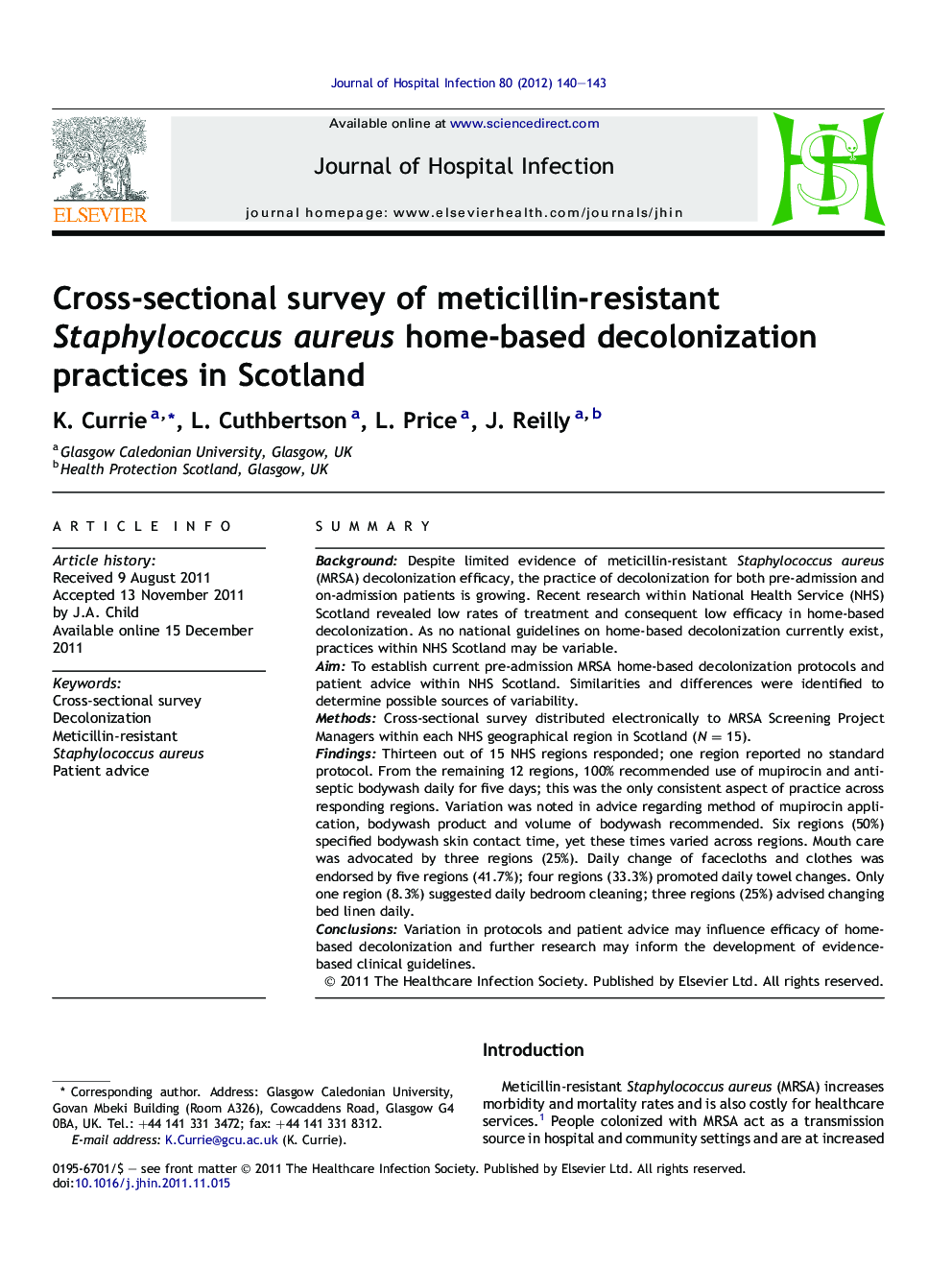| Article ID | Journal | Published Year | Pages | File Type |
|---|---|---|---|---|
| 3372548 | Journal of Hospital Infection | 2012 | 4 Pages |
SummaryBackgroundDespite limited evidence of meticillin-resistant Staphylococcus aureus (MRSA) decolonization efficacy, the practice of decolonization for both pre-admission and on-admission patients is growing. Recent research within National Health Service (NHS) Scotland revealed low rates of treatment and consequent low efficacy in home-based decolonization. As no national guidelines on home-based decolonization currently exist, practices within NHS Scotland may be variable.AimTo establish current pre-admission MRSA home-based decolonization protocols and patient advice within NHS Scotland. Similarities and differences were identified to determine possible sources of variability.MethodsCross-sectional survey distributed electronically to MRSA Screening Project Managers within each NHS geographical region in Scotland (N = 15).FindingsThirteen out of 15 NHS regions responded; one region reported no standard protocol. From the remaining 12 regions, 100% recommended use of mupirocin and antiseptic bodywash daily for five days; this was the only consistent aspect of practice across responding regions. Variation was noted in advice regarding method of mupirocin application, bodywash product and volume of bodywash recommended. Six regions (50%) specified bodywash skin contact time, yet these times varied across regions. Mouth care was advocated by three regions (25%). Daily change of facecloths and clothes was endorsed by five regions (41.7%); four regions (33.3%) promoted daily towel changes. Only one region (8.3%) suggested daily bedroom cleaning; three regions (25%) advised changing bed linen daily.ConclusionsVariation in protocols and patient advice may influence efficacy of home-based decolonization and further research may inform the development of evidence-based clinical guidelines.
